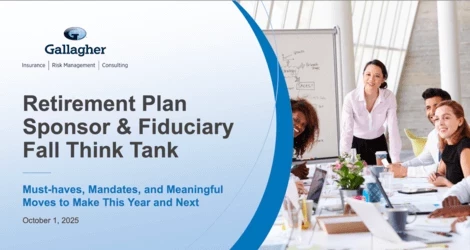Don Kraft, Executive Vice President Human Resources, ICON Plc.
KS: Employee engagement seems to be harder to achieve than in the past. What do you think is an underlying reason for this and what tactics would you suggest that HR employ to increase engagement?
DK: I’m reminded of a saying that goes: ‘It’s hard to talk your way out of something you’ve behaved your way into’. I would say that engagement is harder to achieve today than it was 20 years ago, or in the past, because we are less engaging places to work. We used to have an ethos where employees would come to an organization; they would commit to an organization, build a career there and want to stay for life. The company would equally make a commitment that it would develop a career for life. Companies would look out for people, protect them and invest in them. Over a period of time, we have invested less and signaled a reduced commitment to people. As a result there are many people, including a generation of young people, in their 30s and under, who have watched their parents, and perhaps themselves, impacted by these things. They are saying, "I can’t, and therefore I won’t, count on my employer."
Another significant impact to engagement is that technology is changing the nature of work dramatically. As a result of increasing virtualization, the commitment to the organization that we used to get just by physically hanging around and bonding with each other is no longer there. While there are difficulties with engagement today, I think the framework for engagement remains the same. We have to get people excited about and aligned with the vision and objectives of the organization. We have to provide them challenging work and opportunity for growth. We have to provide reward for performance and achieving that growth. That’s no different than in the past, but we have to think differently about the tactics and the delivery. The key to creating alignment on the perception of opportunity is understanding our employees’ thinking. Companies really need to understand the people that work there. We must understand what excites them, what motivates them and what they are looking for. We need to shape the message (about vision and mission) and shape the work, to as much of an extent as possible, to the way they want to receive it and perceive it. Sometimes you can’t shape the work, but you can shape the message, the reward and the feedback. If we take the time and effort to understand the needs and dreams of the people who work in our company, I think we can improve engagement.
KS: Absolutely. I think that’s a great point that you brought up about the longevity of careers. About the loyalty not being there anymore. Millennials may have had a family member that has worked in the same position for 30 years, but that’s almost unheard of anymore. With a lot of employers, there’s just not that guarantee of longevity. There’s not even guaranteed job security from day to day. I think that it’s a misconception that Millennials don’t want that and that they don’t want to be loyal. We want job security just as much as everybody else does. We just don’t see it happening for us like it has for our parents - or their parents. Employers were loyal to employees just as employees were loyal to companies. The loyalty went both ways. We don’t really see that anymore and I think it’s sad.
DK: I don’t think we (employers) can say, ‘Hey I expect you to stay 30 years’. I think you can actually have people that stay 15, 20 or 30 years, but it’ll be a series of 2-3 year engagements. Employees often ask themselves, ‘Does this excite me? Am I challenged?’. The more often they can answer "yes" the more opportunity they see. To me, the key is to have good first line managers to sit down and talk to their people. People can have long-term careers but will think of it as series of short commitments rather than ‘thinking of staying here forever’. At some point, the longer you’ve been with a place, the more slack you’ll cut the company and the longer each commitment will be because you’ve already got that much invested in the organization. Again, I believe this commitment comes more at an individual level. A lot of it is psychological- not necessarily promotion or reward. It’s more of a relationship thing.
KS: I agree that there are many factors in place. Speaking of having a good frontline, in what ways do you feel that HR can most effectively implement the idea of "leading versus facilitating"?
DK: I’ve been in HR for 30 years now, well actually 32, and it’s simplistic to say, and we don’t do it very much, but the first way is to decide you’re going to lead. Period. I think as a function, we’ve [HR] taken on the role of servant as opposed to a role of service. We’ve accepted the role of second fiddle status because we lack confidence in our ability, in our contribution and in valuing what we bring. For me, it’s very straightforward. The way that you lead in an organization is to first, understand the business and understand the strategy. In our case, we need to understand the gaps in the organization, the company and the business to achieve the strategy and then we must proactively offer solutions to close those gaps. So part one is to learn the business. Part two is to say, ‘I belong here’. I’ve seen way too many HR people act in a way that says, ‘I’m a servant, I’m a support function, I am not your equal’. HR needs to come into the room and say,‘I’m a leader and I’m here’. It’s a presence, a confidence and a belief that emanates from inside. Too often we come in and think, ‘I don’t belong here so I’m going to hang back’, and we don’t actually lead. It’s really a simple idea. Learn the business, act like a leader and take initiative. The point of taking initiative comes from the fact that we are experts, we are technically good, and clearly in my role - or somebody senior like me, we’ve been at it for a long time so we have a lot of depth and value. Just know that you’re bringing that to the table and say to yourself, "It’s valuable and worthwhile to the company". Offer suggestions and initiate things to drive the organization forward. To summarize and perhaps it may be simplistic, but learn the business, lead and trust your expertise and experience. Even if f you’re early in your career and don’t have deep expertise, trust your training and the experience you do have.
KS: There’s something undeniable about that last statement. It’s similar to the idea of having to create your own destiny. You can’t just sit back and let things happen. You have to get out there and develop yourself to be what you want to be. That’s a really great approach to HR.
DK: You can demonstrate that you’re not "just HR". In my case, I’m an executive sponsor for one of our five largest customers, so I make sales calls and visibly work our internal organization to deliver on that customer’s needs. Because of this, people see me in a different light. Once I demonstrate that I know the facts and I know what we are supposed to be doing, people will go, ‘Oh here are ideas to imporve our results and we should give them a try’ and they sort of forget that you are HR in a service sense. There are things that we can do as HR Leaders to demonstrate that we’re not so narrow as their stereotype. The narrower you are perceived and the narrower you act, the more you will be perceived as a facilitator and less as a leader within the organization.
KS: That’s a really powerful statement. If you act in a narrow capacity, you will be seen in a narrow capacity. Which perfectly segues into our next question: What are some basic ways to ensure that company leaders are held to a standard level of accountability?
DK: This goes to the leading part rather than the facilitating part. You want people issues, and I use that term as opposed to HR issues, to be considered part of the business and part of a natural accountability. If I’m a leader in an organization, I may be accountable for revenue. I may be accountable for profitability, productivity measures and quality measures too. But, I am also accountable for people measures. In most organizations, I have found that in the end, everything gets reduced to some form of data. It means that you have to reduce the people issues to quantifiable things so that it’s easily accepted by the organization and easier for accountability. At ICON, we do an annual employee engagement survey. Each manager of five or more people gets an individual scorecard for the employee engagement survey and we hold them accountable for an improvement in that scorecard on an annual basis. We have a scientific organization. They like data. You give them a report that says ‘data’ and then say to them, ‘Here is how you action plan to improve thedata’. So in this case the methodology and the survey that everyone participates in is data based and fact based. It allows us to hold people accountable. For us, it’s a pretty significant leap forward and is a consistent approach to making sure that people are rewarded when they do very well and that those who don’t do very well are made to either improve or exit the role. For me, generically, most organizations ‘data speak’ so you have to reduce the accountability to a numeric or a data based thing. In our case, it’s an engagement survey. Then you can hold people accountable. Then you want to educate for consistency. An employee engagement survey is not a perfect way to tell if things are going right, but it can be the foundation on which you educate, coach, build and strengthen the organization.
KS: It’s a way to quantify engagement without pinpointing what issues may be occurring in the day to day functions of employees in their jobs.
DK: We have an expectation and we have a whole process. You get the survey data and a report. You have to develop an action plan with your team. Then you’re supposed to implement the action plan and report on the action plan to your boss. In theory, we also have a process. In the end, we can pay based on numeric performance and that gets people’s attention- even if they’re not brought in conceptually. Some company’s use other ways. Maybe it’s turnover. Maybe it’s leadership development. Metrics are considered to be hard data. For me, that’s the real answer to holding people accountable and making it consistent with a perception of fairness. To make a standard: make it quantifiable, make it routinely reported and make it part of the pay package.
KS: That seems to be a very nice program that ICON has. It seems consistent and sounds like it makes for happy employees.
DK: We are a service based company and we bill our people’s time. We serve the pharmaceutical industry which generally has low turnover and so they like to see that in their vendors. For us, the people issues are an imperative. For a service business, if people aren’t there, you don’t bill. We have to improve our capabilities. We want to our leaders to be accountable for people issues. The good ones should be rewarded and accelerated in their careers. The poor ones should be weeded out. So you have to quantify everything and drive from that perspective.
KS: Other than what we’ve discussed, but still from an HR perspective, what do you think sets ICON apart from all other companies?
DK: I’m not sure I would say that we are set apart from all other companies. That is a tall order. What’s unique is that combination of a service business and also the fact that we are still a fairly young company. The fun about HR at ICON today is that we are critically needed by the organization and we’re in a position to build; build infrastructure, build tools and build systems. So there’s not only a chance to impact the organization but to build things within the organization. I think that makes it a cool place and a good environment for the HR community and HR professionals because you get to actually build something and not just maintain it. Without us doing our work the company simply cannot reach its strategic objectives.
KS: That does sound like a really a great opportunity. Most people that join a company don’t get a chance to build the framework, they just come in and maintain what’s already there and do the best that they can with it. So ICON’s HR really provides an interesting opportunity. Going off of that, what are your top priorities for 2016?
DK: Going back to the state of ICON and our growth and need to build infrastructure and management systems, the most important thing, for me, is to build our desired culture. We are in the process of saying, ‘we know what we want to be strategically, we know we are not there, but we want to build the culture and the capability to deliver on the strategy’. The number one priority is driving the desired culture attributes into the company. Number two is developing the capabilities that we don’t think we have but need to execute the strategy. My third is to continue the evolution and improvement of efficiency in HR. I’ve been with the company about three years and we reduced the expense associated with HR, we’re investing in technology to really make us much easier to deal with and to ultimately create a more efficient organization. I want to continue on that path. So the priorities are to build culture, build capabilities, continue to improve our service and improve our efficiency internally. We will not be bored anytime soon.
















